Hurricane Helene at the Nexus of Climate Crisis and U.S. Militarism
By
Guest Blogger
Posted:
|
Climate Change,
Military & Security
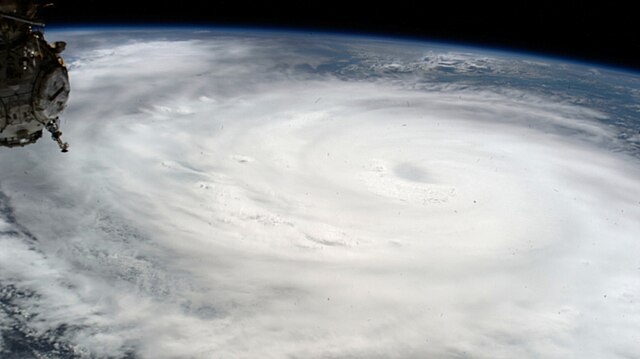
Photo Credit: NASA, International Space Station
By Aspen Coriz-Romero and Alliyah Lusuegro
Last month, people across the southeastern U.S. lost their homes, communities, and lives to the devastating impacts of Hurricane Helene. Many have connected the storm's rapid development and harsh impacts to the ongoing climate crisis.
The crisis is not a stand-alone phenomenon – there are many corporate actors who have had a lot to gain from decades of downplaying the long-term effects of burning fossil fuels. Although the oil and gas industry is a major part of the worsening crisis, it is important to also confront the connection to U.S. militarism.
The U.S. military is an alarming driver of climate change. Maintaining a large global military force is extremely fuel-intensive. Additionally, operations have historically been driven by interests in oil extraction. The Pentagon spends at least $81 billion every year “protecting” global oil supplies. Despite the Pentagon having higher carbon emissions than entire industrialized countries, military emissions are exempt from required reporting under international climate agreements. Understanding the relationship between rising militarism and the growing threat of climate catastrophe must be a central part of climate justice movements.
U.S. military dominance has not made us any safer – in fact, it has had an adverse effect. U.S. policymakers continue to spend obscene amounts of taxpayer dollars on prioritizing warfare with the military budget rapidly approaching $1 trillion. Meanwhile, funding for disaster preparation and relief is annually depleted by increasingly extreme weather events. Over-investments in militarism have come at the cost of investing in vital climate mitigation, adaptation, and resiliency efforts.
Addressing the causes and effects of climate change is indispensable to the security of everyone everywhere. Tragically, Hurricane Helene is only one of the most recent of many climate disasters this year – urgently reminding us that the time to reinvest is now. To protect our shared future, decarbonization and demilitarization must go hand-in-hand.
Read the infographic below to learn more about Hurricane Helene and its ongoing impacts, and how the U.S. government must shift towards substantial climate solutions over continued violence against people and our planet.
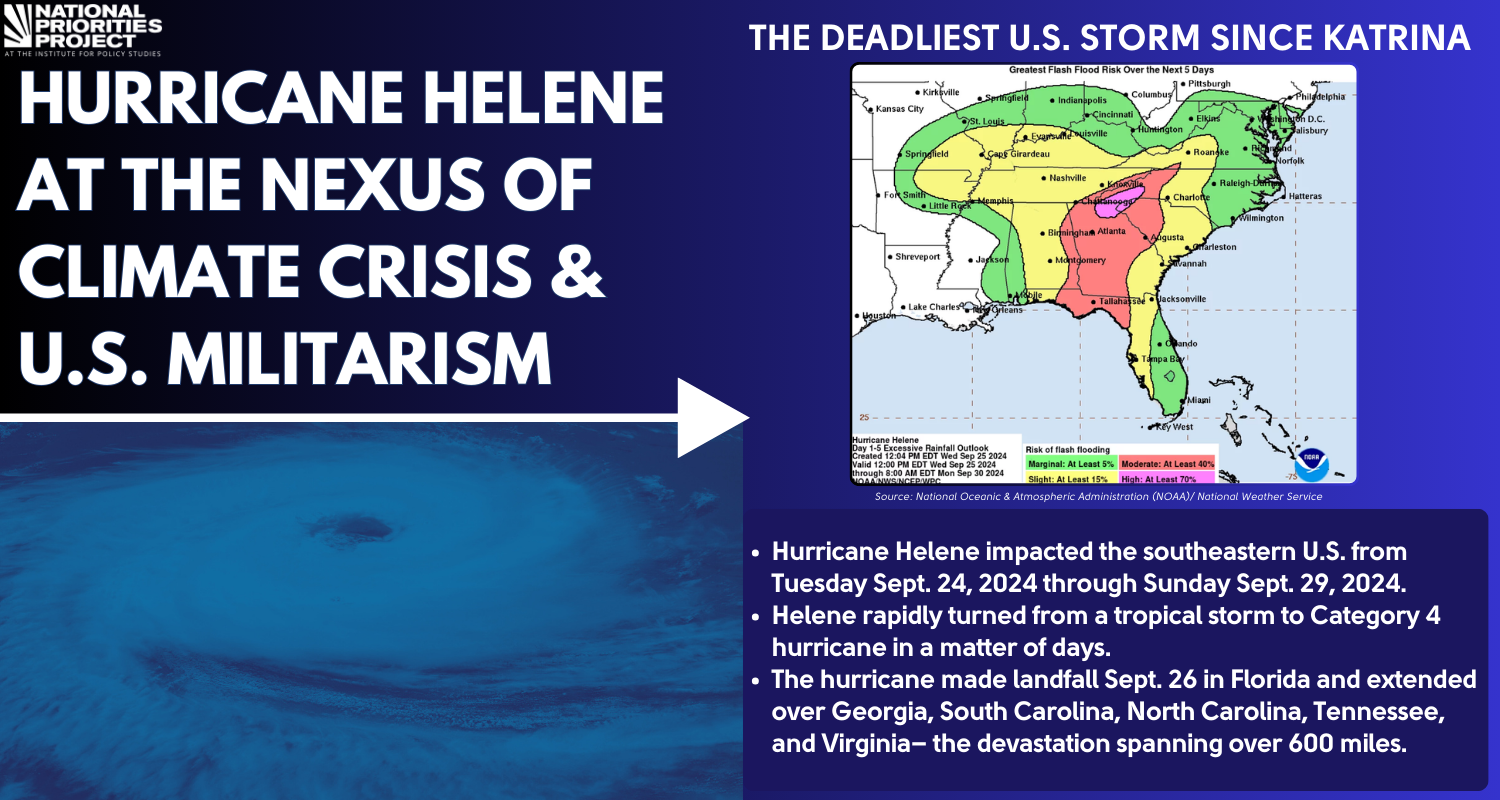
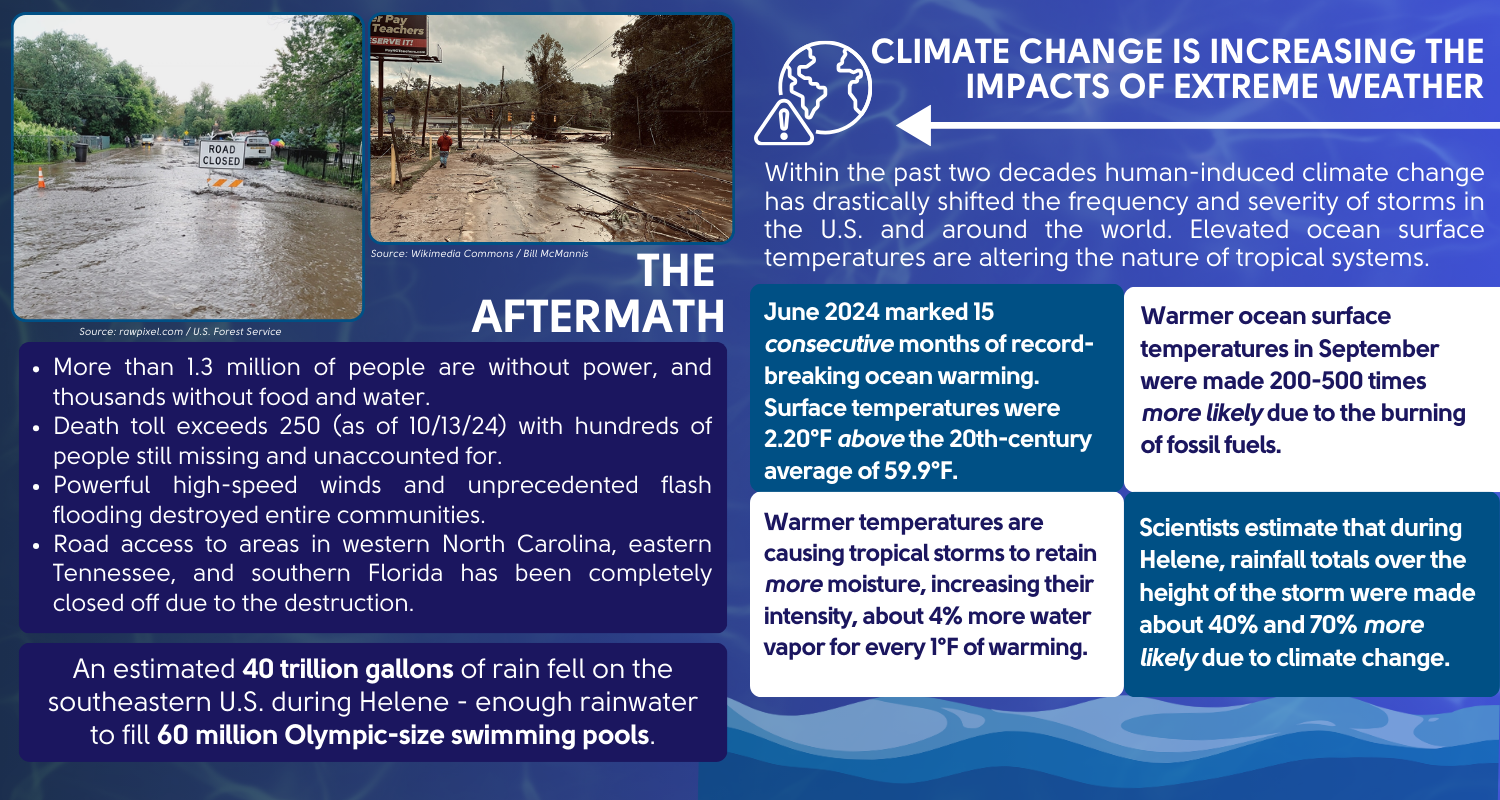
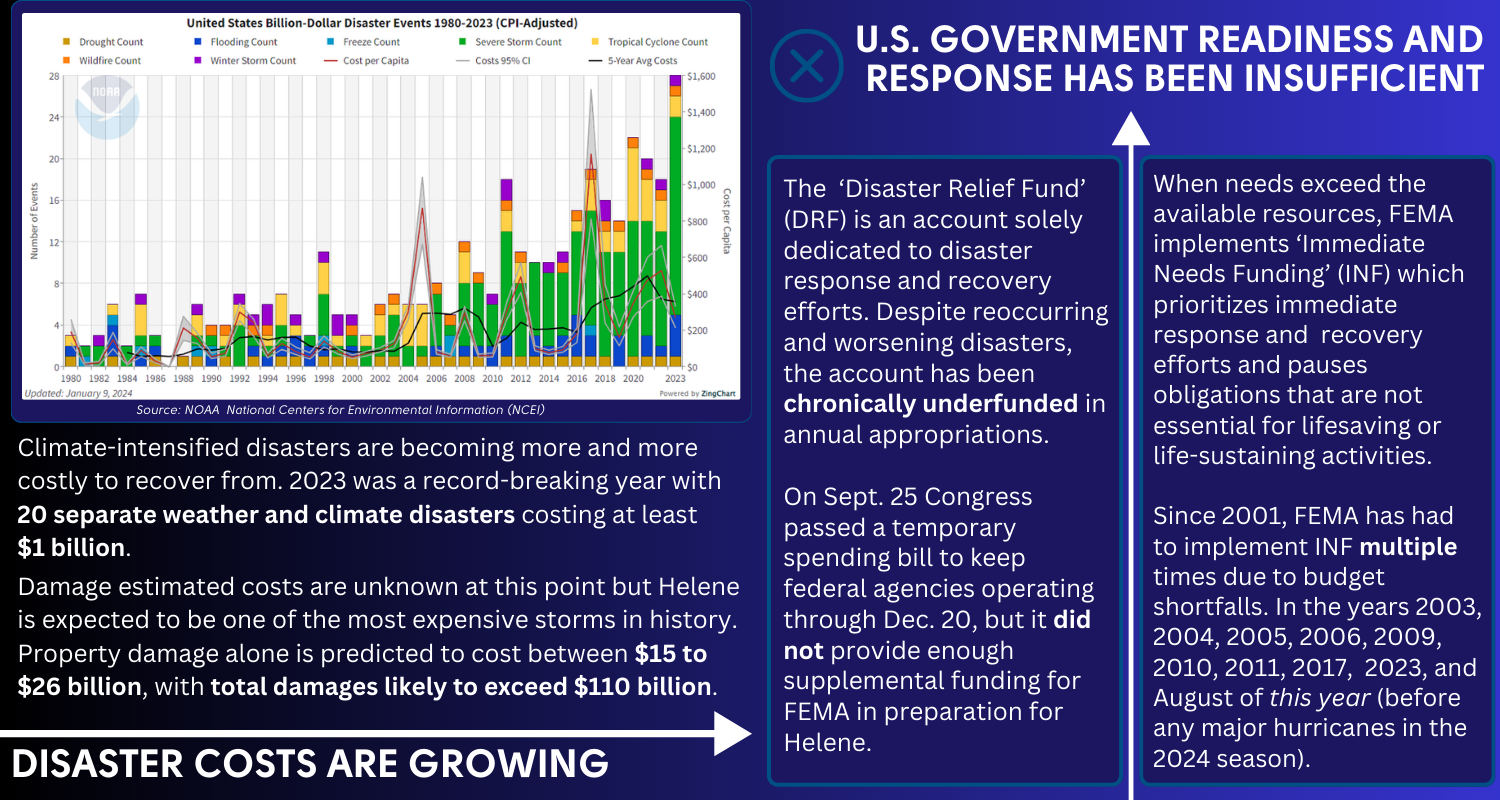
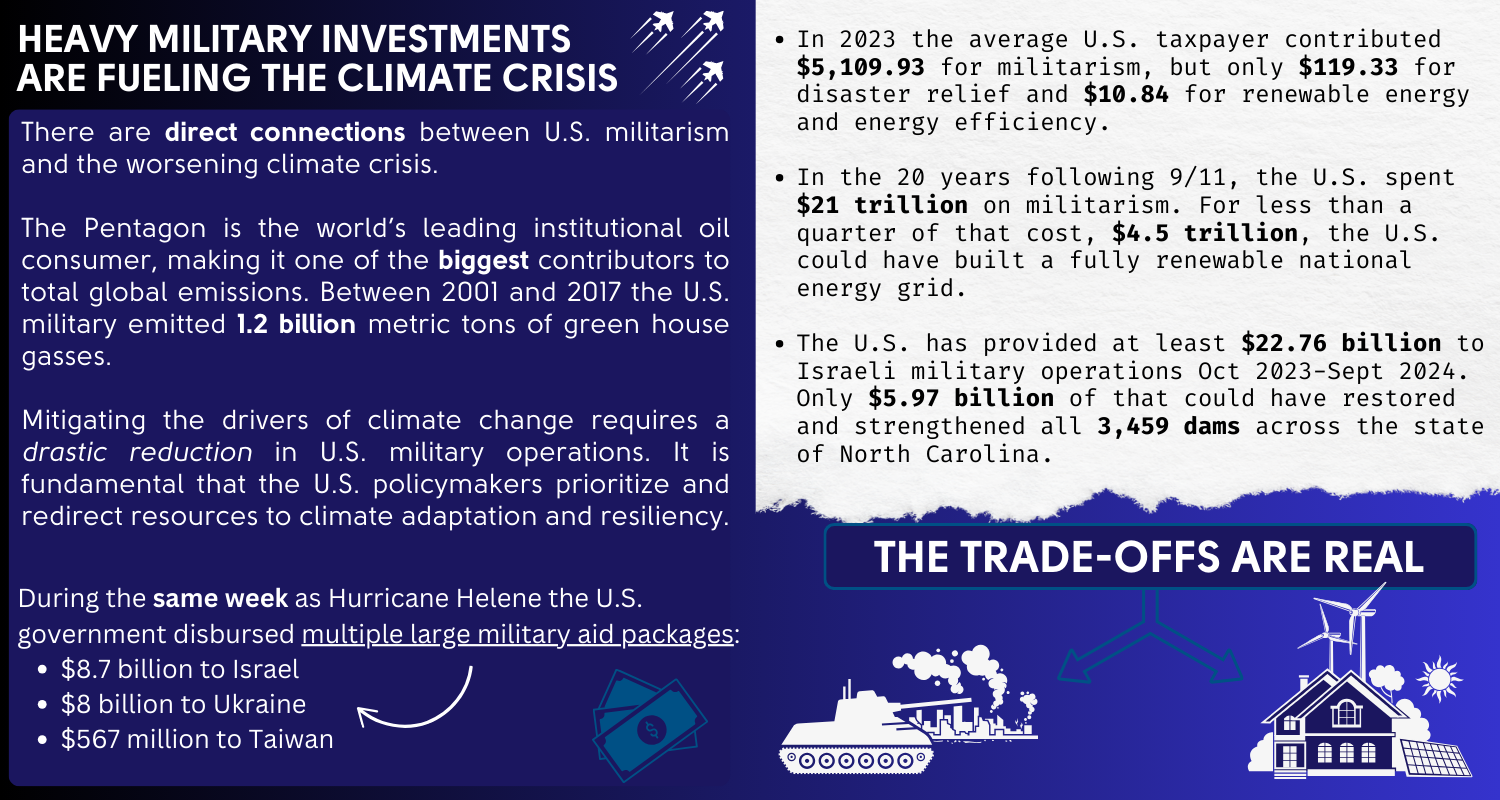
.png)
Aspen Coriz-Romero is the New Mexico Fellow at the Institute for Policy Studies.